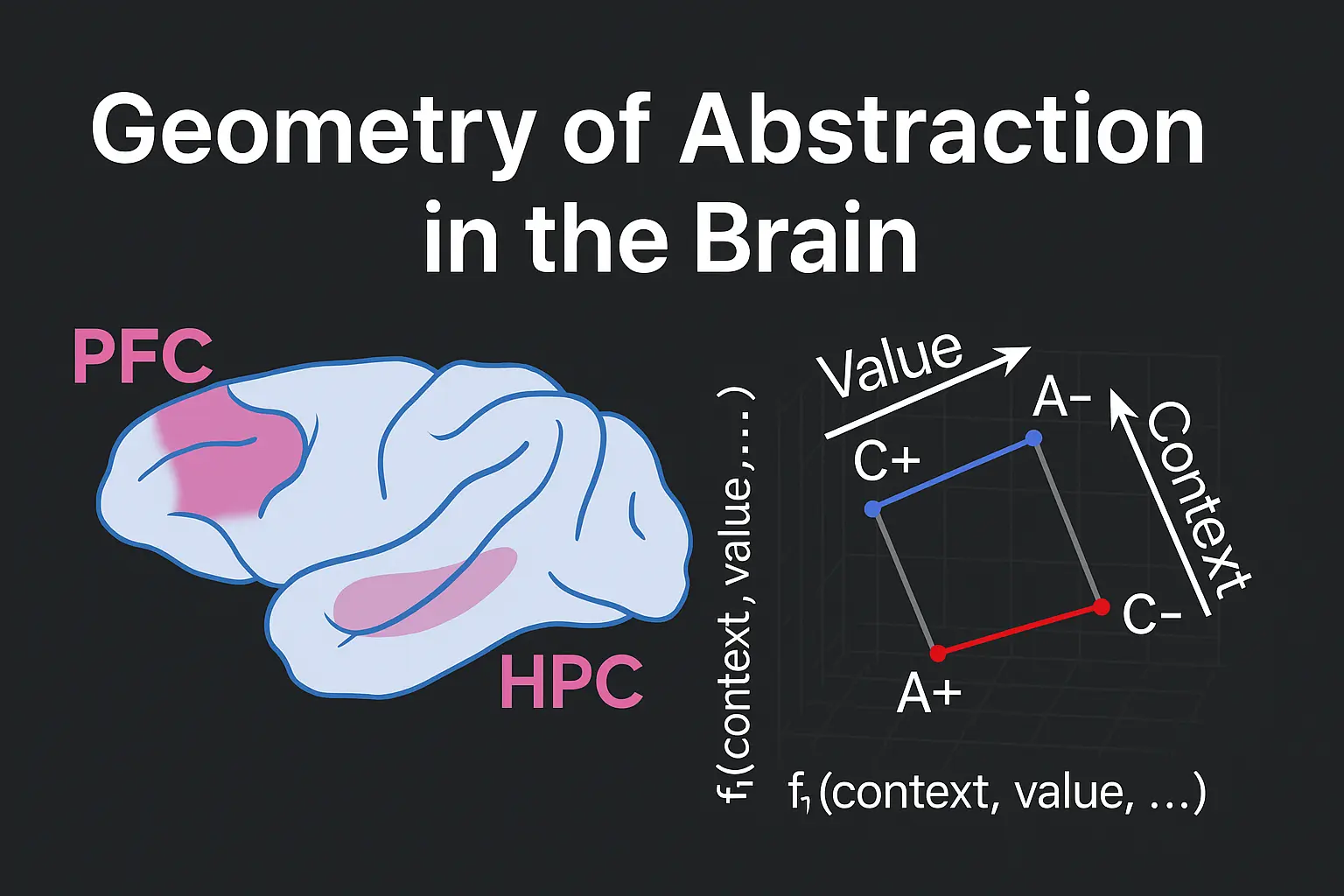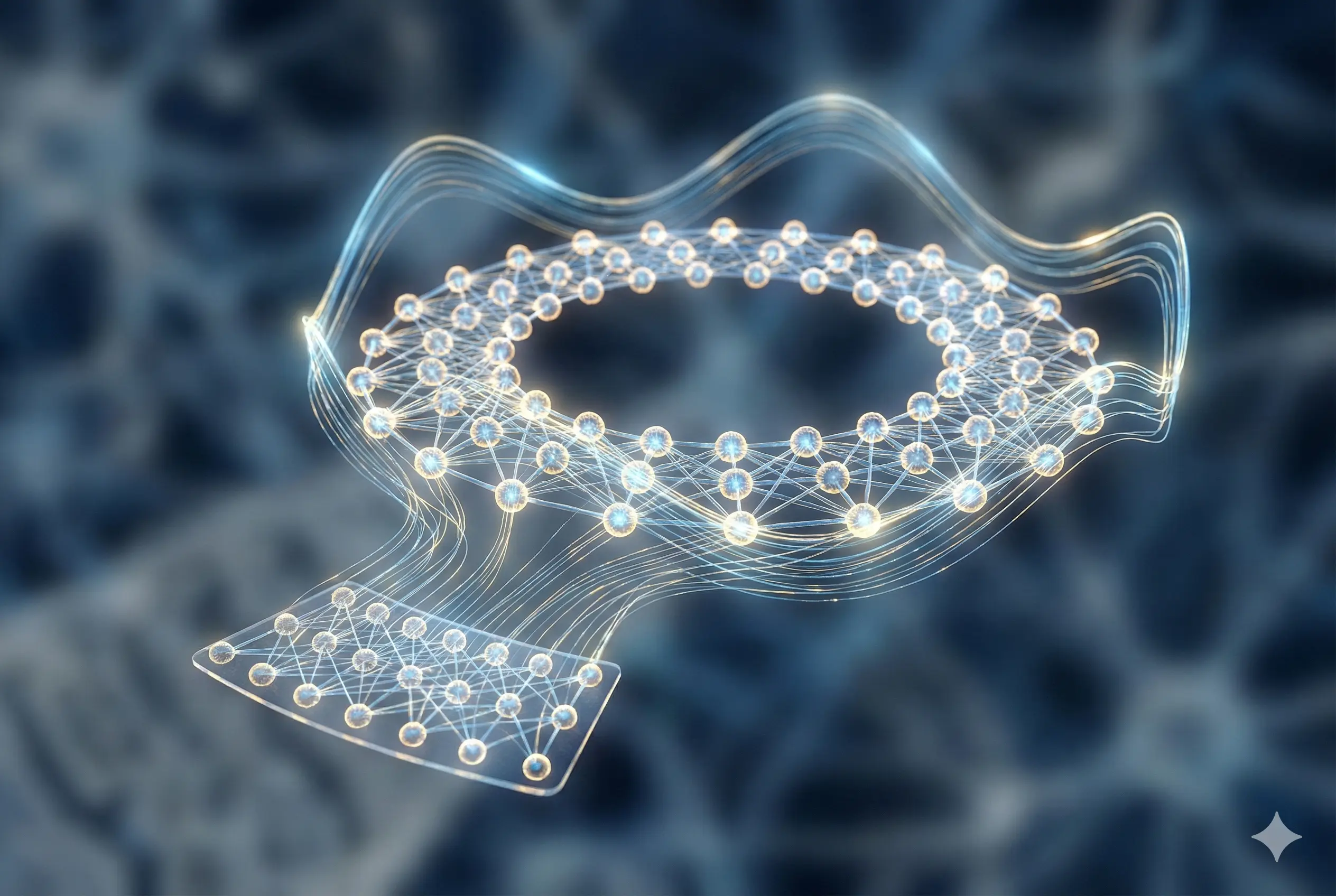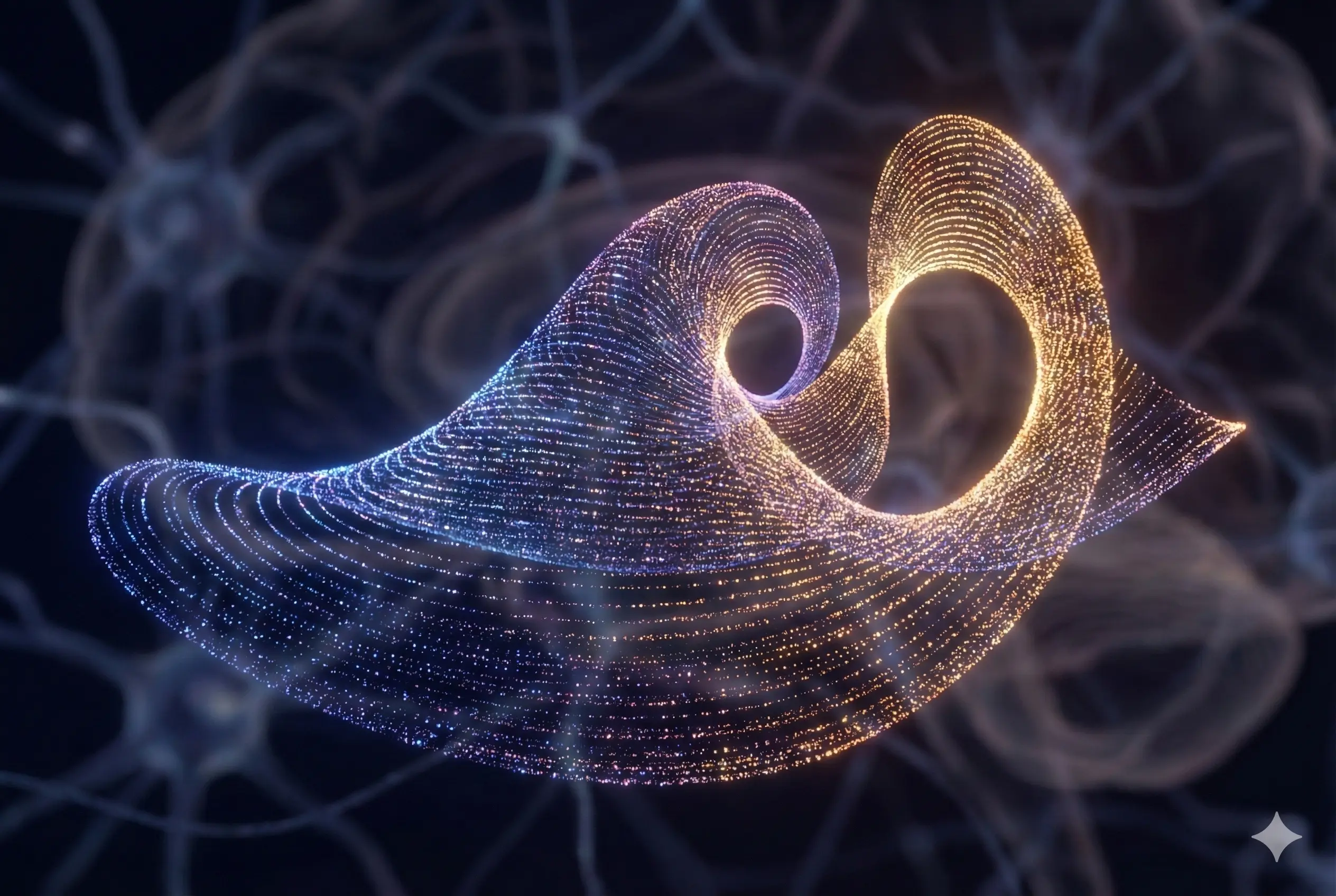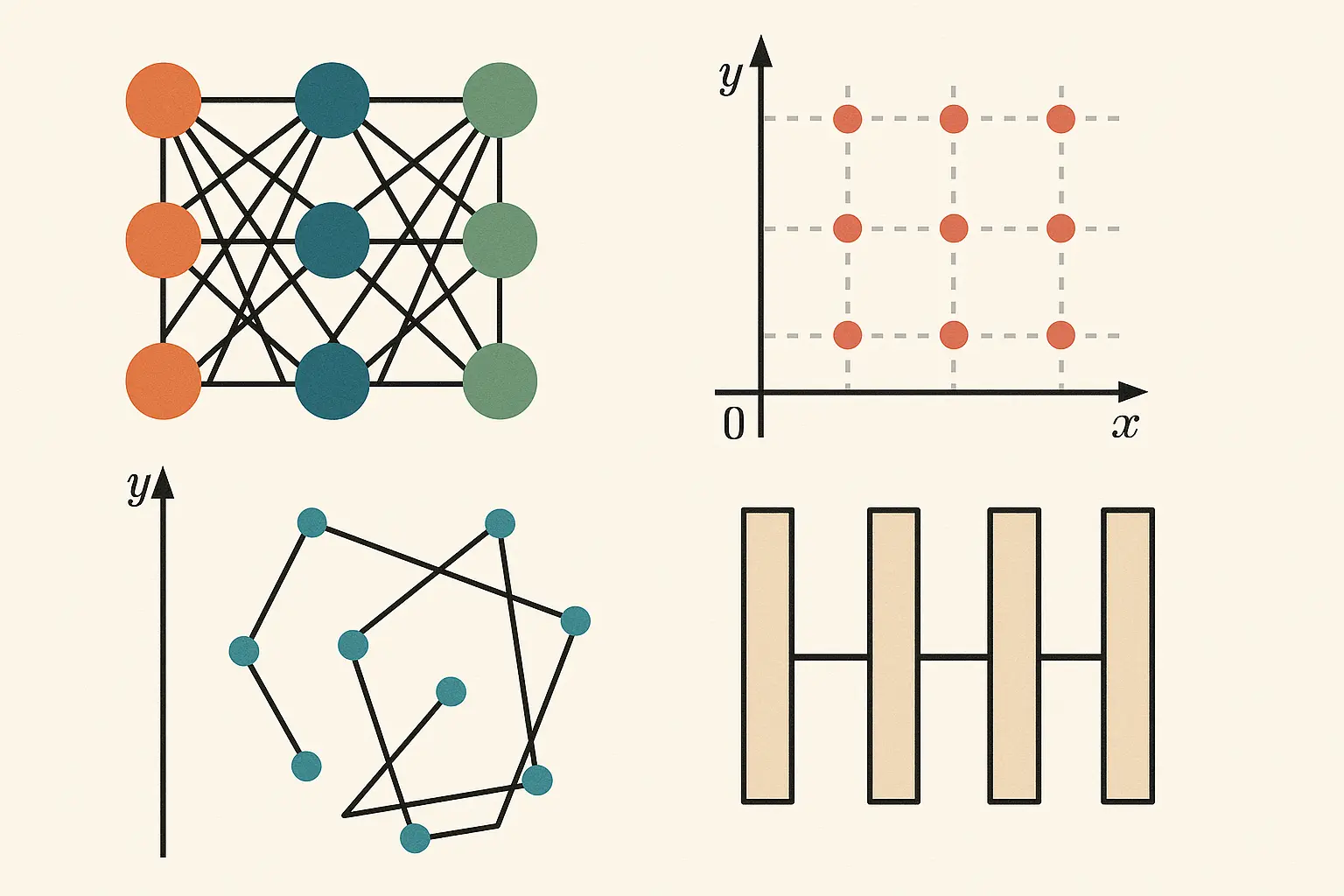Compositional Hippocampus Constructs Future Behavior
Hippocampal memory is compositional, and performs consolidation primarily through replay, allowing for zero-shot generalization and the construction of future behavior

Original Paper: Constructing future behavior in the hippocampal formation through composition and replay
Core Idea
Traditional State-Space Models (SSMs) are limited by slow, inflexible sequential learning.
This paper proposes that hippocampal memory is:
- Compositional (built from reusable building blocks)
- Consolidated via Replay
Summary of the Paper
Compositional Memory
- Building Blocks: Experiences are decomposed into Grid Cells (absolute location, X) and Vector Cells (relative walls, objects, rewards).
- Memory Binding: Outer product of Grid + Vector activity forms conjoined representations.
- Storage: Attractor (Hopfield) network retrieves full memories from partial cues.
- Output: Landmark Vector Cells (integrating location + relational info).
Policy Generation
- Reusable Blocks: Encodings imply actions (e.g., reward vector → move right).
- Generalization: Unlike traditional agents, compositional agents adapt quickly when rewards/boundaries shift, enabling zero-shot generalization.
- Latent Learning: Agents build maps without rewards, enabling instant policy formation once rewards appear.
Role of Replay
- Constructive Replay: During rest/sleep, Grid + Vector info integrated without physical exploration.
- Performance: Outperforms Q-learning (Bellman Backup), especially in noisy environments and with limited replays.
Experimental Validation
- Replay & Ripples: Home-Away-Well task shows replay-linked hippocampal activity near Home.
- Relative Coding: Cell activity shifts with landmark relocation, showing compositional, relative encoding driven by Replay.
Key Discussion Points
- Active Replay: Must replay occur only at rest, or also during exploration?
- Independence of Cells: Are Grid/Vector cells truly independent before replay binding?
- Model-Based vs Model-Free: Is superior efficiency simply due to richer structure encoding?
- Biological Implementation: How does hippocampus compute the “outer product”?
- Compositional Rules: Can agents learn explicit reusable behavioral rules (inductive bias)?



